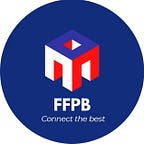The topic of healthcare concerns all of us to some extent. It comes as no surprise that the industry is constantly evolving with the emergence of new medical equipment and medications. Medical trials and research generate a vast amount of data, and considering the industry’s daily security breaches, it is logical to incorporate a technology that can address these vulnerabilities.
Blockchain in Healthcare
While blockchain technology initially gained prominence in the financial sector, its use cases in healthcare are also gaining traction. The global medical blockchain market is projected to reach $55.83 billion by 2026, growing at a CAGR of 35% from 2021. Hospitals and medical facilities are embracing blockchain development services to enhance their data-related processes.
So, how does blockchain work in healthcare?
Data Handling
Pharmaceutical companies deal with significant amounts of data, yet there is often no unified system for pharmaceutical data storage. Each department typically uses separate data structures and models. However, it is crucial for these companies to have a cohesive approach.
One potential solution to this problem is the creation of a blockchain-based system for data records that can be integrated with existing electronic data record software. Each new record added to the blockchain is transformed into a unique hash function.
Better Patient Experience
Blockchain can also benefit hospitals and improve the patient experience. Hospitals store sensitive data about patients and their health. A secure and efficient way to transmit this data is through a blockchain approach, enabling secure recording, transmission, and sharing of information between devices and healthcare providers. Blockchain ensures the efficient, accurate, and trustworthy transfer of patient data between health institutions.
If individuals are comfortable sharing their medical data, blockchain presents an opportunity to monetize it. Researchers are constantly in need of relevant medical data for their research activities. Typically, research companies rely on intermediaries, such as healthcare marketing companies, to find patients with specific health issues. However, blockchain eliminates the need for intermediaries, benefiting both pharmaceutical companies and end-users.
Health Distribution Chain
Falsified medicines pose a significant challenge in the healthcare industry. These counterfeit or compromised drugs result from poor manufacturing practices, ineffective storage, theft, and the penetration of low-quality or counterfeit products into gray markets.
Blockchain can address this problem by controlling aspects such as drug and product identification, tracking, verification, detection and response to counterfeit medicines, and notification of relevant agencies like the FDA. It facilitates the sharing of required information to ensure the integrity of the health distribution chain.
Takeaway
In conclusion, the adoption of blockchain technology in healthcare has the potential to enhance data security, patient experiences, and overall industry efficiency.
Some healthcare organizations like French Meditect already successfully integrate blockchain to their workflow, which leads to greater results and smoother processes.
Organizations like FFPB play a crucial role in driving the development and implementation of blockchain solutions. As we move forward, we can expect a healthcare system that is safer, more transparent, and more effective.
